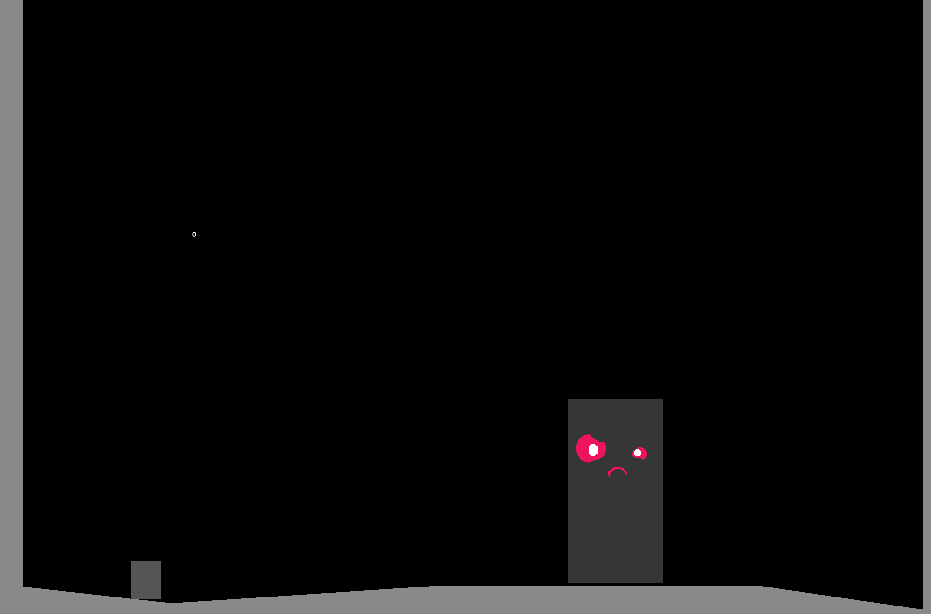This week, critics find different ways to talk about paranoia, fear, and comfort in relation to videogames.
Imagine with me now
I want to start with a little link to the roundup of Emilie Reed’s special event that wrapped up this week here at Critical Distance, and then continue with a piece that discusses at the use of visual symbols with historical resonance.
- Visual Essay Jam roundup | Critical Distance
- Detention Review | ZAM – The Largest Collection of Online Gaming Information
Kent Sutherland examines the effective use of Taoist imagery and body horror in this aesthetically striking game.
“There are many film dramas and documentaries about real-world atrocities, but imagine with me now: what if someone made a horror movie about a real-world atrocity? What if a movie about the real deaths of thousands of people was filled with jump scares and shock gore? The idea feels offensive. But Detention does manage, with unambiguous success, to be a real horror game about real-world horror. How does this game get away with it?”
Experiment
Creators discuss their process in these pieces, using words and illustrative images.
- Gamasutra: Stanislav Costiuc’s Blog – Pros and Cons of a regular schedule for a side-project blog
Stanislav Costiuc shares the results of an experiment in writing to a schedule. - Gamasutra: Gabriel Priske’s Blog – Prototyping
I don’t often put development updates in this roundup, but Gabriel Priske’s account of one prototyping process did a great job of unpacking some expressive qualities of platforming physics. Partly through these two gifs:
Divine and absolute
Two different stories about power and agency are explored here, one finding much more success than the other.
- Video Game Tries To Tackle Gang Violence In Chicago, Fails
Gita Jackson examines the moments that undercut We Are Chicago’s narrative payoffs. - Raising Questions of Power in Reigns – Not Your Mama’s Gamer
Alisha Karabinus considers the rhetoric in one game’s model of monarchy.
“We think of sovereign power not as power earned, but power bestowed, at least when we’re thinking of sovereign power both as absolute and unquestionable, and in a medieval/feudal sense – the divine and absolute power of monarchs.”
Era of uncertainty
Considerations on how people in the future will make sense of gaming as it is carried on today are measured in these pieces against concerns about how our preservation practices might affect people in the here and now.
- Longing for Transcendence in Virtual Worlds
Drew Dixon reflects on knowledge and artefacts in digital media. - History Has Its Eyes on You: Games, Archives, and The Preservation of Knowledge – Not Your Mama’s Gamer
Lee Hibbard’s post on preservation offers some interesting thoughts on how to relate to history during a time of crisis.
“In an era of uncertainty, the presence of an archive can comfort us, make us feel like we’ve made a contribution to a group we care about. It can also lead to damaging, dangerous practices that ruin people’s lives.”
Performatively self-aware
Relationships through gaming that connect people to broader society are examined in these pieces, which uncover no shortage of conflict and contention.
- Gamasutra: Nick Yee’s Blog – Female Gamers Want To Kill You, Just Not With Guns
Nick Yee shares some survey results. I generally find averaged figures presented along gender binary splits a bit problematic, but this data could nevertheless be a useful reference point. - Engineering Evolution – First Person Scholar
Pierson Browne discusses the sociological and semiotic significance of metagaming in tabletop card games. - YouTube’s Monster: PewDiePie and His Populist Revolt (Content warning: antisemitism, white supremacy)
John Herrman’s account of the Pew Die Pie fiasco ties it into observations about the broader nature of making money from online celebrity.
“It makes sense that YouTube would become home to such a performatively self-aware economy. It is, after all, one of the most mature of the major social platforms. […] And in the people who depend on the platform to pay their bills, it inspires a peculiar mixture of paranoia, desire, gratefulness and disdain that shows up clearly in their work.”
Compelled to compete
Finally, some thoughts on how games affect and reflect mental states.
- All work and no play • Eurogamer.net
Simon Parkin highlights the value of rest and leisure for hard-working videogame protagonists. - Portal 2’s Co-Op Was Perfect
(Content warning: sizeism) Cecilia D’Anastasio observes how GLaDoS’s mind games shift when faced with two test subjects.
“[O]ne of you is the leader, and the other must accept a subservient role. It’s something I’ve always despised, that a game mode named for split responsibility often fails to do even that. Portal 2‘s co-op is funny in that way. Starting out, you and your partner are compelled to compete for answers. The gameplay reflects that, and GlaDOS satirizes it.”
Subscribe
Critical Distance is community-supported. Our readers support us from as little as one dollar a month. Would you consider joining them?
Contribute
Have you read, seen, heard or otherwise experienced something new that made you think about games differently? Send it in!



